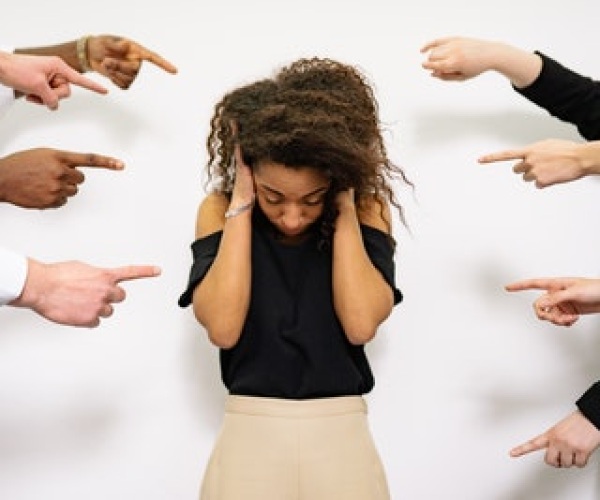What is Social Anxiety?

Often people from time to time might get nervous/anxious in front of crowds, meeting new people, or presenting in front of people. However, for some people this anxiety can be so intense that it disrupts their daily life, stops them from doing things they enjoy, and cause significant impact on their relationships – this is social anxiety.
Research suggests that almost 11% of the Australian population experiences social anxiety during their lifetime, with just under 5% experiencing social anxiety in any 12-month period. Social anxiety appears to be more common in women than men, and often starts in childhood or adolescence (median 13 years).
Common experiences:
- Fear of situations in which you may be judged negatively
- Worry about embarrassing or humiliating yourself
- Intense fear of interacting or talking with strangers
- Fear that others will notice that you look anxious
- Fear of physical symptoms that may cause you embarrassment, such as blushing, sweating, trembling or having a shaky voice
- Avoidance of doing things or speaking to people out of fear of embarrassment
- Avoidance of situations where you might be the center of attention
- Anxiety in anticipation of a feared activity or event
- Intense fear or anxiety during social situations
- Analysis of your performance and identification of flaws in your interactions after a social situation
- Expectation of the worst possible consequences from a negative experience during a social situation
Common physical symptoms:
- Nausea
- Dizziness or light headedness
- Feeling that your mind has gone blank
- Muscle tension
- Trembling
- Blushing and stammering when trying to speak
- Trouble catching your breath
Common thoughts:
- “I just know I’ll get this wrong.”
- “I’ll look like an idiot.”
- “They’ll realise how stupid I really am.”
- “They can tell I’m so anxious.”
Common situations/scenarios avoided:
- Interacting with unfamiliar people or strangers
- Attending parties or social gatherings
- Going to work or school
- Starting conversations
- Making eye contact
- Dating
- Entering a room in which people are already seated
- Returning items to a store
- Eating in front of others
- Using a public restroom
Individual and/or group psychological therapy has been demonstrated as effective ways to treat social anxiety.
Psychological therapy involves strategies like:
- Cognitive restructuring
- Behavioural experiments
- Exposure to feared situations/scenarios
If you need support to help you cope with social anxiety, contact us at Prosper Health Collective, we are here to help.
References:
Australian Bureau of Statistics. (2008) National Survey of Mental Health and Wellbeing: Summary of Results, 2007 (4326.0). Canberra: Australian Bureau of Statistics.